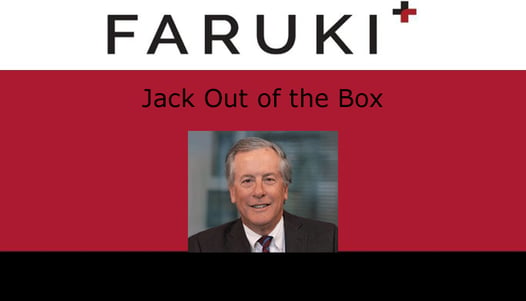- July 14, 2023
- Jack Greiner
- Jack Out of the Box
 An Ohio Appellate Court recently issued a decision that is good news for the First Amendment, and apparently bad news for red heads. The Court overturned a disorderly conduct conviction stemming from a man calling his neighbor a "red headed bitch" in a dispute over access to a driveway. In the Court's view, the circumstances did not amount to fighting words.
An Ohio Appellate Court recently issued a decision that is good news for the First Amendment, and apparently bad news for red heads. The Court overturned a disorderly conduct conviction stemming from a man calling his neighbor a "red headed bitch" in a dispute over access to a driveway. In the Court's view, the circumstances did not amount to fighting words.
According to Darren Foley, on the night of October 6, 2022, he parked his truck in his driveway in a fashion that blocked egress to the public street. Foley claimed the driveway was entirely on his property and no other property owner had a right to use it, but he suggested that his neighbor Cody Gibson had used the driveway on previous occasions. Foley stated he blocked his driveway "[t]o protect [his] family from [his] neighbors going too fast up and down [his] driveway."
According to Foley, after he parked his truck in the driveway, Gibson appeared outside. Foley testified that he "remember[ed] [Gibson] yelling at [him]. [He] ignored most of it. And [he] remember[ed] [Gibson] saying something-calling [him] something along the lines of a redheaded bitch." Foley stated that after Gibson called him a "redheaded bitch," he did not respond to Gibson either physically or verbally. Foley testified that he instead went inside and called the police department.
Foley also testified he had an ongoing dispute with Gibson regarding use of the driveway, which led him to call the police department on Gibson on several previous occasions. Foley further stated he was on his property and Gibson was on his own property when Gibson called him a "redheaded bitch." Foley testified that Gibson did not approach him, and he estimated that Gibson was 40-50 yards away at the time of the incident. Finally, Foley confirmed he did not say anything to Gibson in reply, and he stated he did not try to fight Gibson or "cuss him out."
Gibson essentially admitted to the facts elicited in Foley's testimony. At the conclusion of the evidence, the trial court found the State had "proven beyond a reasonable doubt that there was a likelihood that using that language between neighbors would result in a violent response." Accordingly, the trial court found Gibson guilty of disorderly conduct as charged in the complaint, fined him $58, and ordered him to pay court costs.
Gibson appealed and found a friendlier audience there. The question for the appellate court was whether the use of profanity without more constituted "fighting words" that would survive a First Amendment challenge. In reaching its decision, the court noted "[t]he 'fighting-words' analysis is intensely fact specific and outcomes will vary from case to case, but decisional law offers several helpful guideposts. First, as a general matter, `something more than mere profanity is required to constitute fighting words.' . . . Moreover, . . . although 'a person need not actually be provoked to a violent response' for words to be 'fighting words,' the failure of the targeted party to respond might evidence that the words were not 'fighting words.'"
In the court's view, "considering contemporary standards, Gibson's epithet was of a milder variety compared to other cases where more-egregious expletives were not found to be 'fighting words.'" It continued, "[t]o be sure, we cannot rule out that the insult used by Gibson might be sufficient in another instance involving a simmering feud between neighbors to move the offended party to immediate violence. Depending on the particular circumstances, such an insult might be the proverbial 'straw that breaks the camel's back,' causing relations to devolve into physical conflict. But here, even with the existing discord between Gibson and Foley, the other circumstances surrounding Gibson's disparaging remark provide ample reason to reject the notion that a reasonable person would have reacted with instant aggression."
In summary, the court ruled "we do not commend Gibson for his behavior. Gibson had the right to voice his displeasure with Foley's decision to block the driveway, and for this purpose, he had the entire English language at his disposal. But in place of eloquence, Gibson resorted to vulgarity and petty insults. However, as inappropriate as it was for Gibson not to take the high ground, the law does not proscribe mere incivility."
In short, "sticks and stones may break my bones, but words won't get me convicted."
